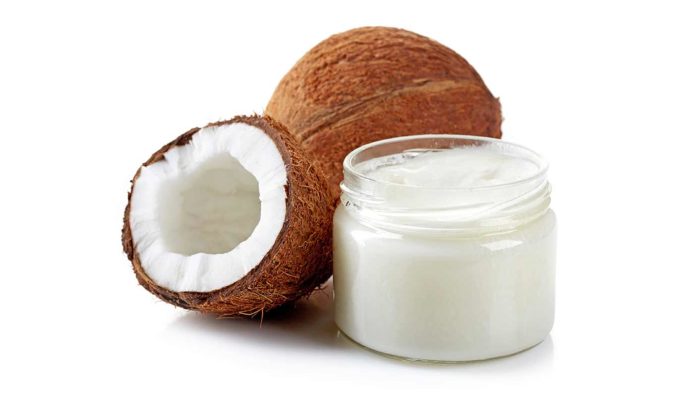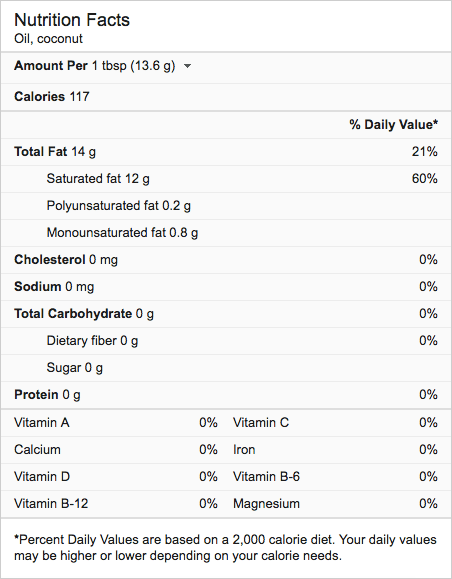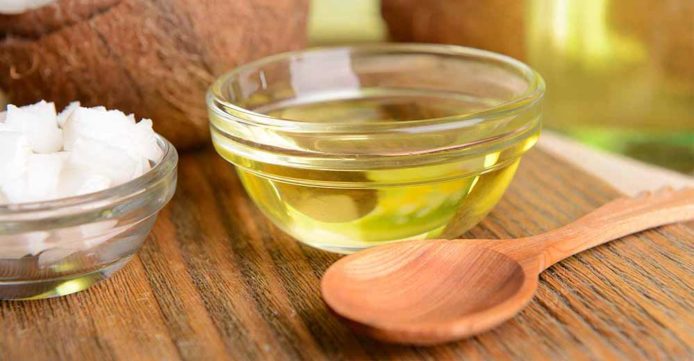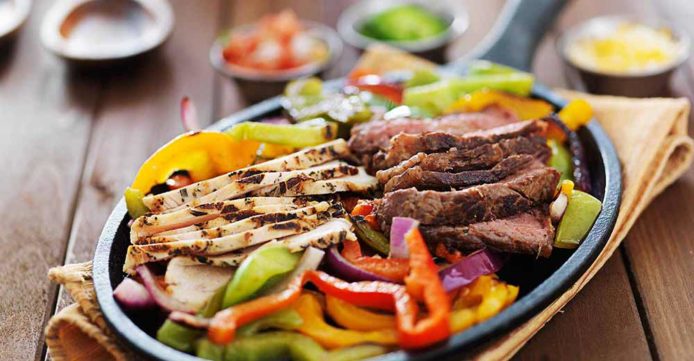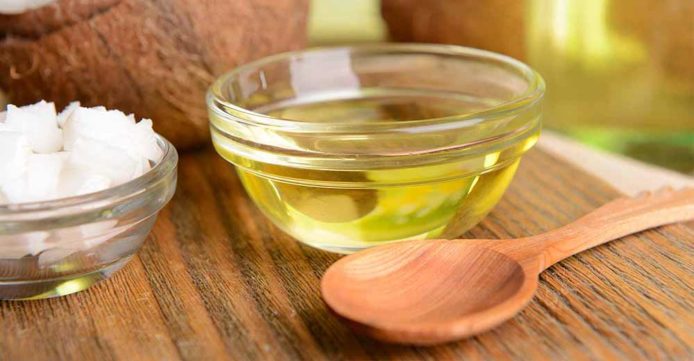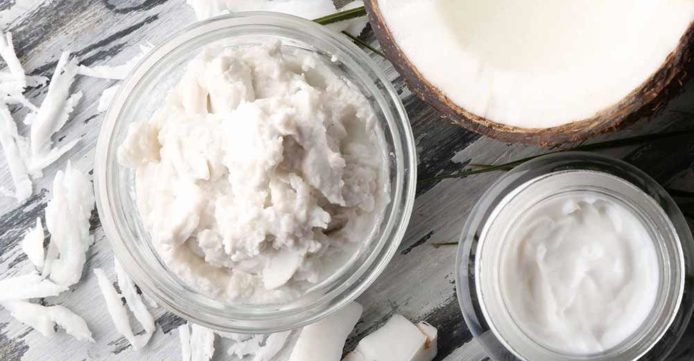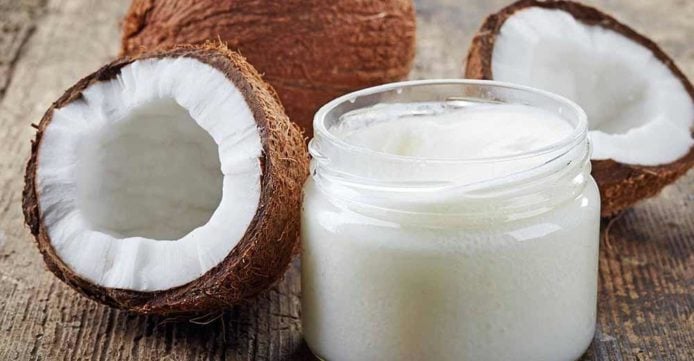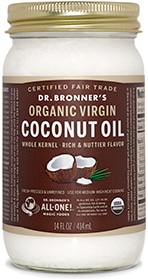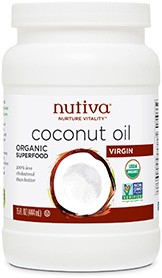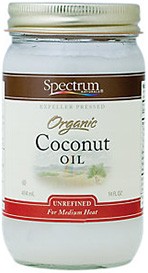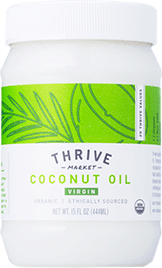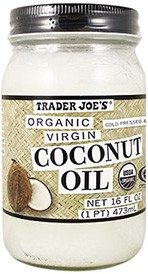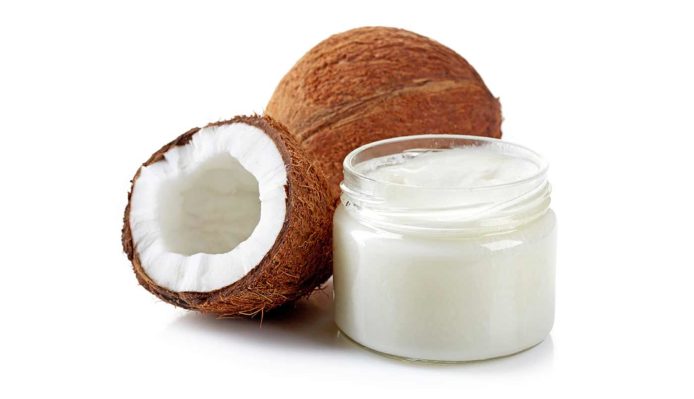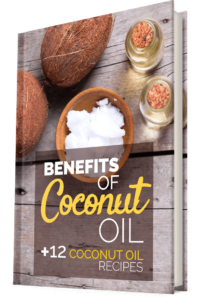Paleohacks Presents
The Ultimate Guide to
Coconut Oil
A breakdown of what coconut oil is, how you can use it, and all the fun ways it can transform your life.
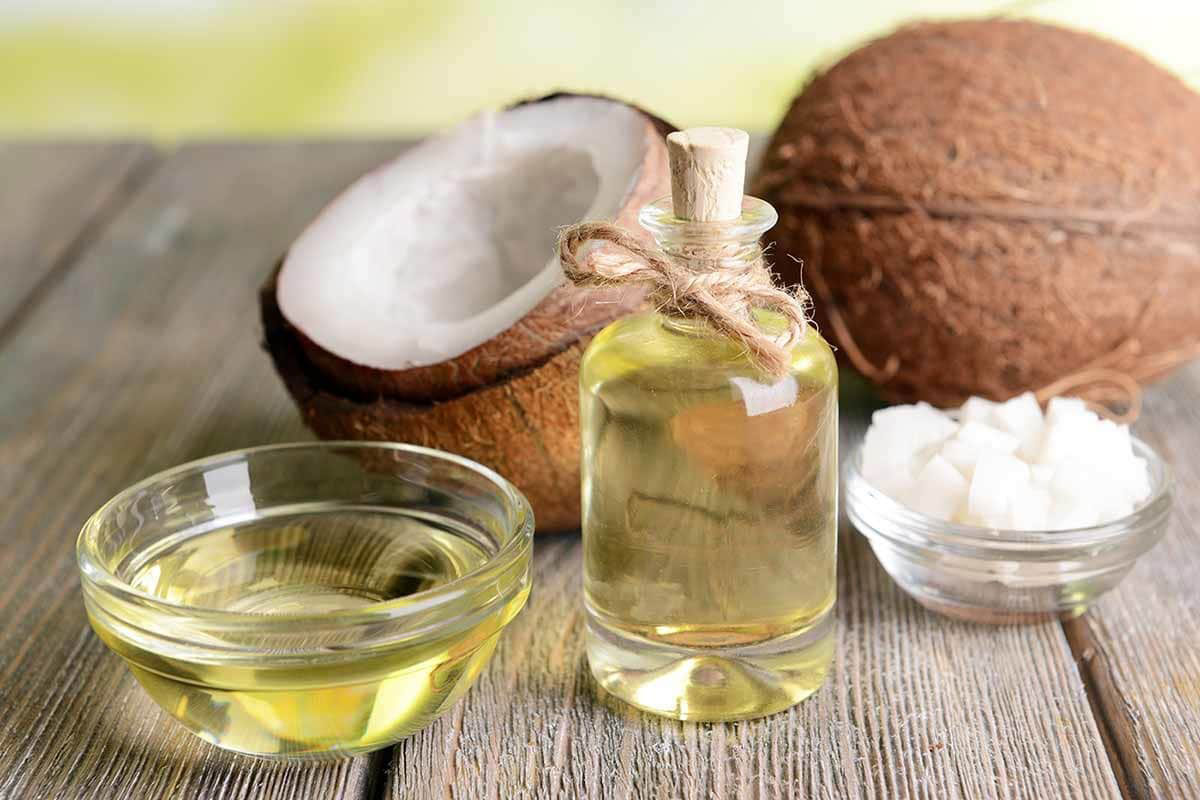
What is Coconut Oil?
Let’s start at the beginning. What exactly is coconut oil?
Coconut oil is made by extracting it from the coconut “kernel,” the white, meaty part of the coconut beneath the shell. Its unique, nutritional profile is a game-changer for anyone mindful of their health.
Did you know that some people get the majority of their calories from this single food?
It’s true. The Tokelauans (who live in the South Pacific) get over 60% of their calories straight from coconuts—without any serious health problems (e.g., heart disease) to speak of (1).
Coconut Oil Nutrition Facts
Coconut oil is a calorically-dense source of energy and healthy fat.
Just one tablespoon of coconut oil contains:
- 14 grams of fat (12 of which are saturated)
- 116 calories
One of the most unique things about coconut oil’s nutritional profile is the extremely high percentage of saturated fat. About 90% of the total fat found in coconut oil is saturated, making it one of the richest sources of saturated fat around (2).
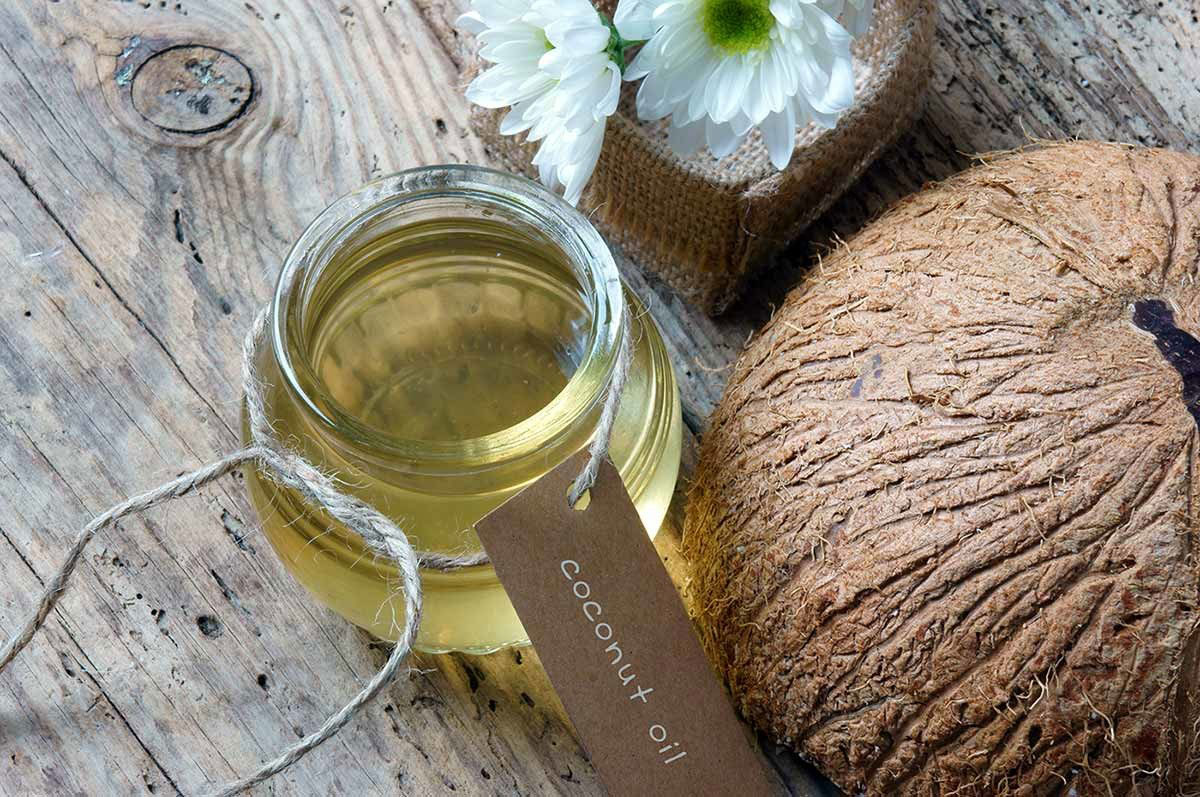
Is Coconut Oil Good for You?
People have been using coconut oil for thousands of years, but it’s faced some nasty press over the past few decades.
The Issue?
Its high-saturated fat content.
Starting around 50 years ago, the mainstream medical establishment, (supported by flawed research from Ancel Keys’ infamous Seven Countries Study) believed that eating saturated fat clogs arteries and leads to heart disease (2).
Just like whole eggs and red meat (two other foods we now know are extremely nutritious), coconut oil has found a place on mainstream nutrition’s naughty list.
However, newer research has come to light, which definitively disproves the supposed connection between heart problems and eating foods high in saturated fat (3). For around 75% of us, eating saturated fat won’t raise our cholesterol—because it isn’t affected by dietary intake. Even among people who have high cholesterol, an increase in total cholesterol doesn’t necessarily imply a greater risk of heart trouble.
“Not all saturated fats are created equal.”
Mainstream nutrition also missed a key nuance: Not all saturated fats are created equal. Because coconut oil contains Medium Chain Triglycerides (MCTs), instead of long-chain fatty acids, your body metabolizes them differently than fats found in meats and cheeses (4). And they’re worlds apart from the manmade, hydrogenated fats found in processed foods.
Coconut oil is incredibly healthy and versatile… as long as you’re willing to get past the misconception that saturated fat is evil.
Bottom Line:
- People have been thriving on coconuts and their oil for thousands of years.
- Coconut oil is high in fat. Almost all of it (around 90%) is saturated.
- The medical establishment’s advice about avoiding saturated fats at all costs was ill-advised. New research emerged, which destroys the supposed link among saturated fat, cholesterol problems, and heart disease.

The Benefits of Coconut Oil
Coconut oil is way more than just a tasty source of fat.
Here are some of the incredible benefits it can offer you:
Weight Loss
It might seem counterintuitive: How could eating a fat-dense, high-calorie oil be one of the best things you can do to lose weight?
But it’s true!
The MCTs in coconut oil help you burn more fat. Because they go straight from your digestive tract to your liver, your body can use them as a quick energy source. Eating the same amount of calories from MCTs, instead of long-chain fatty acids, causes you to burn up to 5% more calories a day (5).
Coconut oil also helps curb your appetite. Multiple studies found that people who eat the most MCTs at breakfast ate fewer calories the rest of the day—without consciously trying to lower their caloric intake (6). This might be explained by how MCTs are metabolized in the body.
Dental Health
Coconut oil is also a great way to keep your dentist off your back. Its antibacterial properties make it the perfect way to keep your mouth and teeth healthy, whether it’s used in homemade toothpaste, mouthwash, or oil pulling.
One study from India found that oil pulling reduced bad breath, killed harmful bacteria, and improved overall dental health (6).
Skin Care
You can also use coconut oil to help keep your skin moisturized, smooth, and youthful.
Coconut oil works great on dry skin, because it’s been shown to improve skin hydration and the lipid levels on the skin’s surface (7).
It also keeps your skin looking youthful. Coconut oil works like an antioxidant, improving your appearance and protecting your skin from the damage of free radicals (8).
Coconut oil is also an excellent choice for an aftershave lotion or pain relief after a sunburn. It keeps the skin moist, while its antibacterial properties ensure that wounds don’t become infected.
Hair and Scalp Care
If you’re struggling with dry hair or dandruff, coconut oil might be just the remedy you’re looking for.
You can make homemade coconut oil shampoo, and use it every time you shower—to moisturize your scalp and eliminate dandruff at the source. Another option: Use coconut oil as a natural conditioner. You won’t have to worry about harmful chemicals in other conditioners, and the oil has even been shown to reduce protein loss (9).
Antifungal, Antibacterial, and Antiviral
Coconut oil contains lauric acid, which helps fight bacteria and makes it extremely difficult for viruses and fungi to survive.
Many modern health issues (everything from athlete’s foot to yeast infections and digestive problems) are caused by the overgrowth of bad bacteria, fungi, and viruses.
With its extremely high lauric acid content, coconut oil helps prevent those problems. One study found that it’s a natural, effective treatment for Candida albicans and yeast infections (10). Lauric acid from coconut oil (combined with oregano oil) is even more effective in fighting staph infections than certain antibiotics (11).
Controls Cravings
Coconut oil (and many foods made with it) are naturally sweet. You can enjoy them and satisfy your sweet tooth—without throwing your Paleo diet out the window for the occasional binge in the candy aisle!
Besides being sweet, coconut oil also helps suppress your appetite. It’s easier to face random cravings (or avoid them altogether) when you don’t feel hungry throughout the day.
Promotes Brain Health
One study of elderly participants (with mild to moderate Alzheimer’s disease) found that the MCTs in coconut oil improved their memory. After eating the oil, the group showed marked improvement in memory recall (12). That’s probably due to coconut oil being easily absorbed into the body and accessed in the brain—without using insulin.
When you eat coconut oil, the MCTs in it travel straight from your digestive tract to your liver—and turn into ketones.
You might’ve heard of “ketosis,” the state your body enters after eating a few carbohydrates and a large amount of fat. It’s a tool for weight loss.
A ketogenic diet has actually been shown to be effective in reducing seizures in epileptic children—even if they were resistant to typical epilepsy drugs (13). Coconut oil helps by increasing the concentration of ketones in the blood.
Improves Cholesterol and Reduces the Risk of Heart Disease
Coconut oil is loaded with saturated fat, but it has the exact opposite effect on your health (e.g., blood and heart) than the medical establishment used to claim.
Coconut oil actually raises good HDL cholesterol. If you regularly ingest coconut oil over time, the increased HDL and decreased (harmful) LDL result in a healthier cholesterol profile (14). And that lowers the risk of heart disease.
Bottom Line:
- If you use coconut oil regularly, it can cause weight loss, better dental health, cosmetic improvements, and better heart and brain health.
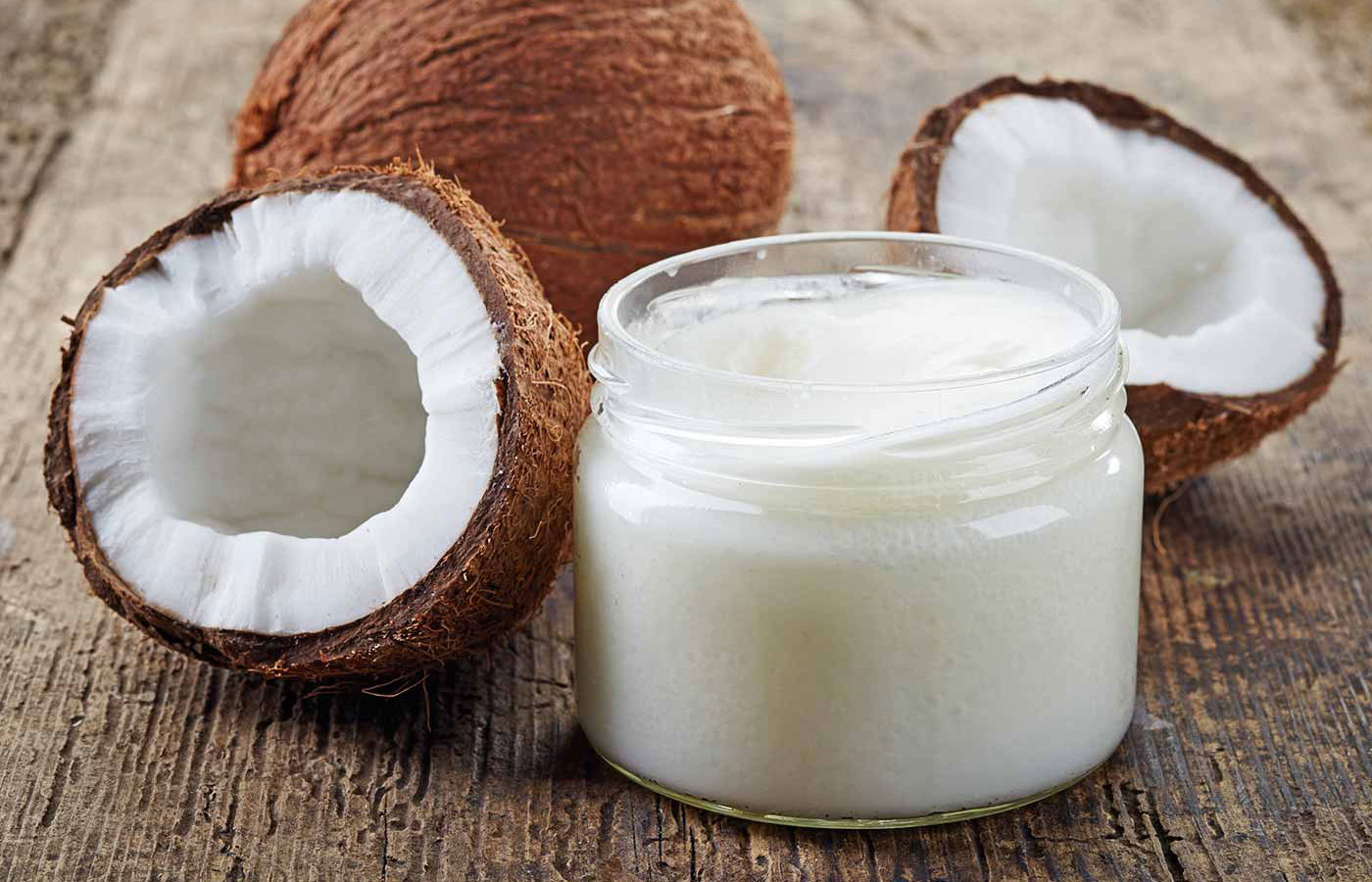
Uses for Coconut Oil
The sheer number of coconut oil’s benefits is only matched by all the cool ways you can use it.
Here’s how:
Skin, Hair, and Nail Care
If you’re struggling with dandruff or dry hair, try making your own coconut-oil shampoo or conditioner. They will help hydrate your hair, eliminate embarrassing dandruff flakes, and leave you with lustrous, full locks.
You can also try coconut oil as a moisturizer. Mix up a batch of coconut-oil based lotion, or just rub the stuff right on your skin. This stuff is a lifesaver for dry elbows, knees, and hands. Try putting some on your cuticles, and watch how fast your nails grow!
Oil Pulling
Oil pulling started in the Ayurvedic medicine tradition from India. It has been around for thousands of years. It’s an awesome way to whiten teeth, kill off harmful bacteria, freshen breath, and prevent tooth decay.
All you have to do is gently swish a little coconut oil (probably less than a tablespoon) in your mouth for 15 to 20 minutes. Be sure not to swallow it, as the oil will draw out toxins and other impurities! Then just spit it out, and wash your mouth out with some warm water.
Weight Loss
If you take coconut oil the first thing in the morning, it helps you burn more calories and eat less during the day—without even trying. Do this long enough, and it can add up to significant weight loss.
You can always turn to coconut oil as a quick snack. If you like the taste, just have a spoonful whenever you’re hungry; it kills cravings and gives you a quick energy boost. You can also mix coconut oil into smoothies, juices, and other drinks like coffee and tea (more on those in just a second).
Cooking Oil for Paleo Recipe
Coconut oil is healthy, Paleo-friendly, and stable—even at extremely high temperatures. Unlike other cooking oils, which can oxidize and go rancid during frying or other high-temperature cooking methods, coconut oil leaves you with nothing to worry about (15).
You won’t just find coconut oil in desserts or sweet treats either (though there are plenty of those!). You can use coconut oil to cook all kinds of meals and snacks–from breakfast to dinner and everything in between.
Coconut oil is a great substitute for recipes calling for margarine or other unhealthy, manmade vegetable oils and spreads.
Massage Oil and Lubricant
Massage therapists have used coconut oil for decades to knead tight muscles and relieve stress. You can do the same. Just get your partner to warm up some coconut oil and rub your back, shoulders, neck, or other problem spots. It’s amazing: A little goes a long way, and it moisturizes your skin, too!
You can even use coconut oil as a sexual lubricant. However, it can damage latex and polyisoprene condoms, so make sure to use another type of lubricant if you’re using those (16).
Melt in Coffee, Tea, and Other Hot Drinks
You can even melt a bit of coconut oil into your coffee or tea; any hot beverage works. Just put a dollop in, and make sure it’s mixed well.
It can be an acquired taste, but some people love it the first time they try it. In any case, adding some coconut oil to your hot drinks adds a nice dose of flavor, as well as a turbo shot of energy in the form of a 100% healthy, Paleo-friendly fat.
Bottom Line:
- You can eat coconut oil, cook with it, and mix it into drinks. You can also apply it to your skin, hair, and teeth— to experience all kinds of incredible health benefits.
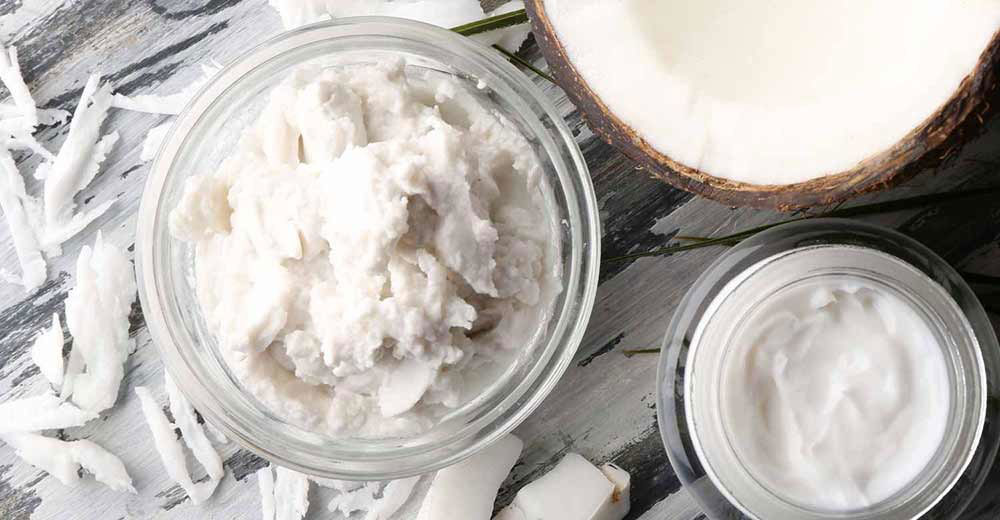
Which Coconut Oil is Best?
With coconut oil’s popularity exploding, there are more products than ever. Figuring out which coconut oil to choose might seem overwhelming, but it doesn’t have to be.
Here’s what you need to know:
Refined Coconut Oil
Most coconut oils are refined, unless the label says otherwise. Refined coconut oil is made from dried coconut meat, which has been removed from the shell (i.e., “copra”).
Copra is inedible without processing. That’s why manufacturers put it through a refining, bleaching, and deodorizing process (RBD) to get rid of impurities and make the end product more stable.
Refining is the most common way to produce the coconut oil you find at grocery stores and health-food shops. It’s usually cheaper than unrefined oil, but slightly inferior in quality. Refined coconut oil still has MCTs, though, and it has a nearly identical nutritional profile to unrefined oil.
Not all refined oils are created equal. Key differences are the extraction method and the chemicals (if any) that are used to process it:
- Expeller-pressed coconut oilsThese are obtained by pressing the coconut meat manually— without using any chemicals. If you’re going for refined oils, these are your best bets.
- Hydrogenated coconut oilsYes, even coconut oil can be hydrogenated and stuffed with harmful trans fats. Avoid them at all costs!
- Liquid coconut oilsStay away from these, too. They don’t contain lauric acid, which is crucial for many of the health benefits listed above (17).
- CentrifugeSome oil is prepared with a centrifuge, which breaks apart (i.e., “fractionates”) the oil from the water; this exposes the oil to less heat during processing (which is good).
Unrefined Coconut Oil
Unrefined coconut oil is made from fresh coconuts, instead of dried copra. Manufacturers produce it by mechanically pressing out the oil —without adding any harmful chemicals.
Unrefined coconut oil is also commonly labeled “virgin” or “extra-virgin.”
- Virgin coconut oil is produced through a “wet milling” process, where the oil is extracted from fresh coconut meat without drying. (This oil is the top quality you can buy.) Or it’s produced by pressing the oil from a dried coconut, which is still better than refined oils.
- “Extra-virgin” coconut oil doesn’t really mean anything. The difference between that and virgin coconut oil is nonexistent; there’s no commonly accepted definition of what “extra-virgin” means. It’s really a marketing term to get you to pay more.
Organic Coconut Oil
Organic coconut oil comes from organic coconuts, which are grown without pesticides, insecticides, and other potentially dangerous chemicals. These oils can be significantly more expensive than non-organic options, but if you’re looking for the top quality, the investment is justified.
Here’s the key thing to keep in mind: Just because you’re buying organic coconut oil, that doesn’t tell you how the oil was produced. But that’s also worth paying attention to.
Bottom Line:
- Refined coconut oil is good if your budget is tight, or you plan to use the oil for things that require a larger quantity (e.g., deep-frying foods, creating bath oils, and moisturizing your skin).
- Unrefined coconut oil that’s processed through wet milling is the top-quality oil you can buy. Don’t worry about getting “extra-virgin” oil. It doesn’t mean anything.
- Organic coconuts are better, but pay attention to how the oil is produced before you buy it.
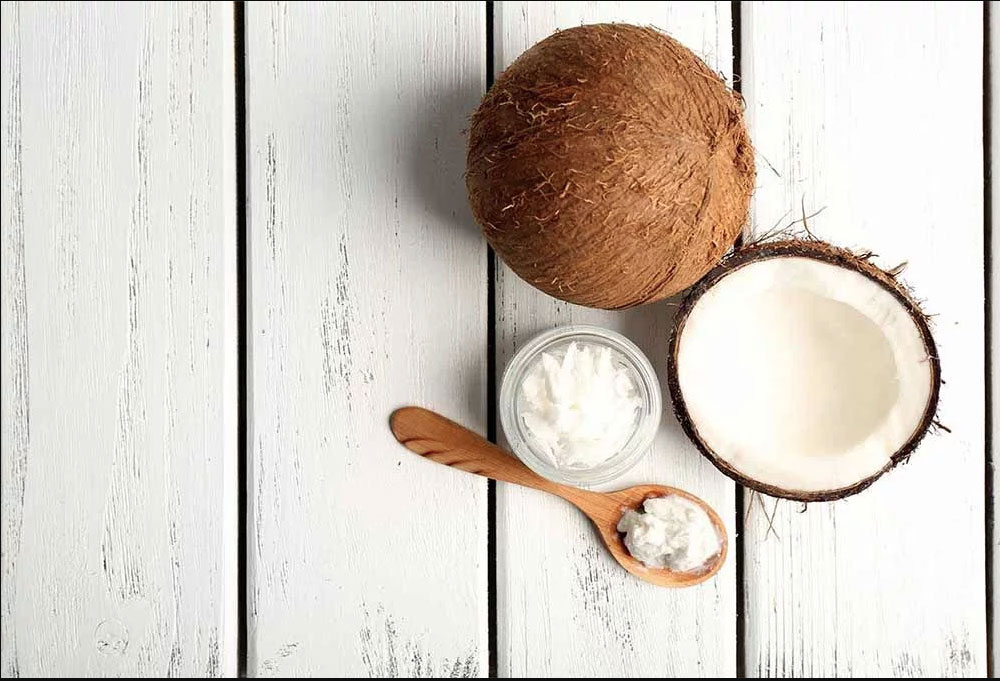
Where Can I Get Coconut Oil
Ideally, look for organic, unrefined coconut oil (the label might say “virgin” or “extra-virgin”) to get the best-quality stuff. You’re looking for oil that came from fresh coconuts, not copra. The purest stuff will be produced via cold-pressing (i.e, without exposure to heat or other chemicals).
You’ll save money by buying in bulk, which works out well because coconut oil can keep for between 12 and 18 months—as long as you keep it away from direct sunlight.
The Best Coconut Oil Brands
Here are some of the top-quality coconut oil brands to look out for:
Dr. Bronner’s Organic Fair Trade Virgin Coconut Oil
Nutiva Organic Virgin Coconut Oil
Spectrum Organic Coconut Oil, Unrefined
Thrive Market Organic Virgin Coconut Oil
Trader Joe’s Organic Virgin Coconut Oil
Best Coconut Oil Stores
Remember, most coconut oil at grocery stores (and even health stores) is refined. And that’s okay if you’re just looking to cook with it, or put it on your skin.
However, if you’re looking for the highest-quality stuff, it’s easier to track it down online.
Thrive Market is a great place to start. They sell plenty of high-quality coconut oil, as well as a ton of other premium-quality natural health products.
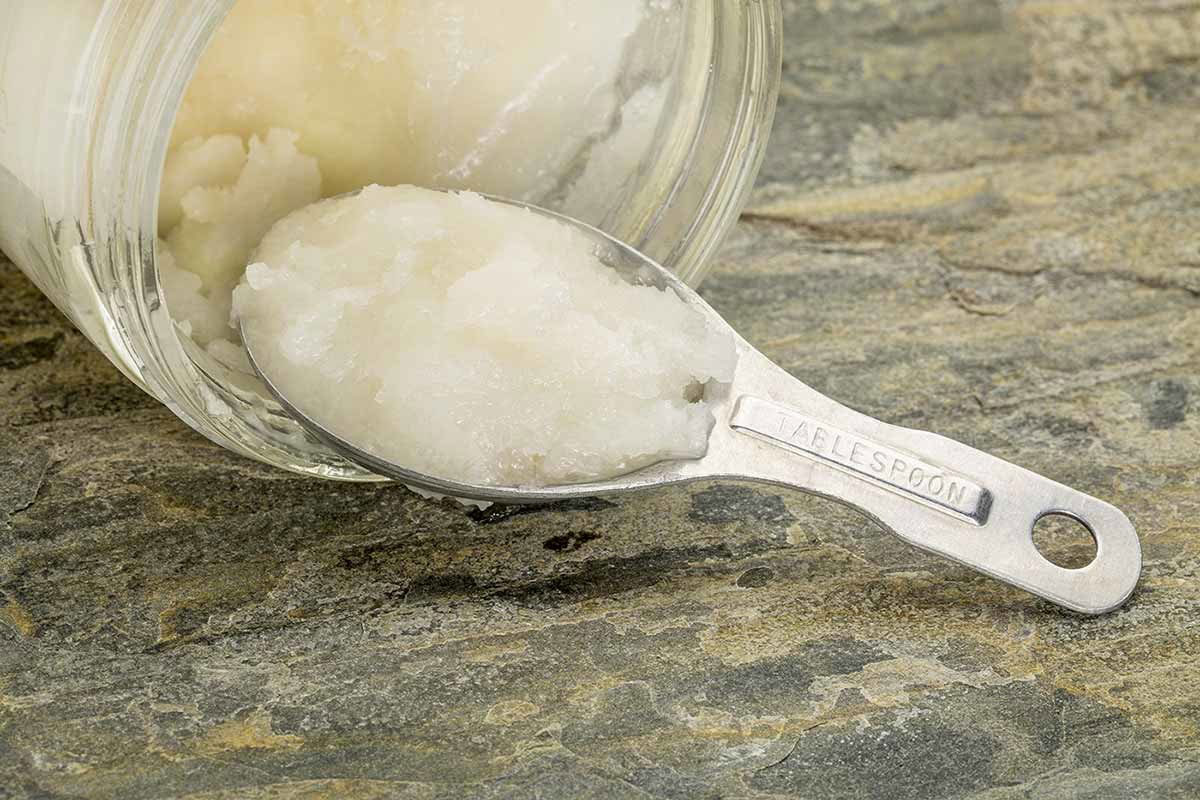
Coconut Oil FAQ
Q: “What’s the difference between coconut oil and MCT oil?”
A: MCT oil and coconut oil are two completely different things. MCT oil is a manufactured derivative of coconut oil, which contains much less lauric acid (18).
Q: “Is coconut oil supposed to be solid or liquid?”
A. Both! Coconut oil is liquid above 75 degrees F (25 C). Below that, it will be a solid fat. Maybe you have solid coconut oil, but you need it in liquid form. All you have to do is add a little heat by rubbing it in your fingers or applying low-level heat.
Q: “Are there any side effects to coconut oil?”
A: Coconut oil is very mild, and most people won’t have any issues. Diarrhea is one possible effect if you consume a lot (e.g., several tablespoons/day) and you’re coming off a low-fat, standard Western diet. If you’re already eating Paleo, you shouldn’t have any trouble.
Coconut allergies do exist, but most people have reactions to the meat itself (which contains protein), not the oil.
Q. “Do I have to keep coconut oil in the refrigerator?”
A: No. How you store coconut oil is up to you–refrigerated or at room temperature. Coconut oil will keep for a year or more, even at room temperature. Keep it out of direct sunlight to make sure it doesn’t go rancid.
Q: “Does cooking with coconut oil cause any problems?”
No. Coconut oil is extremely stable, which means it will hold up nicely, even when it’s exposed to high heat in baking or frying.
Coconut Oil: A Superfood That Lives up to the Hype
Coconut oil has been nourishing millions–maybe billions–of people around the world for thousands of years.
It can help you thrive, too.
It doesn’t matter if you cook with it, put it on your skin, use it to clean your teeth, or all of the above. Coconut oil can help with all of those things and more.
It’s a superfood in every sense of the word. Give it a try today.
Enter Your Email Address Below To Get Our FREE Benefits of Coconut Oil
What’s your favorite way to use coconut oil? And why?
Leave a comment below, and share your experience!


